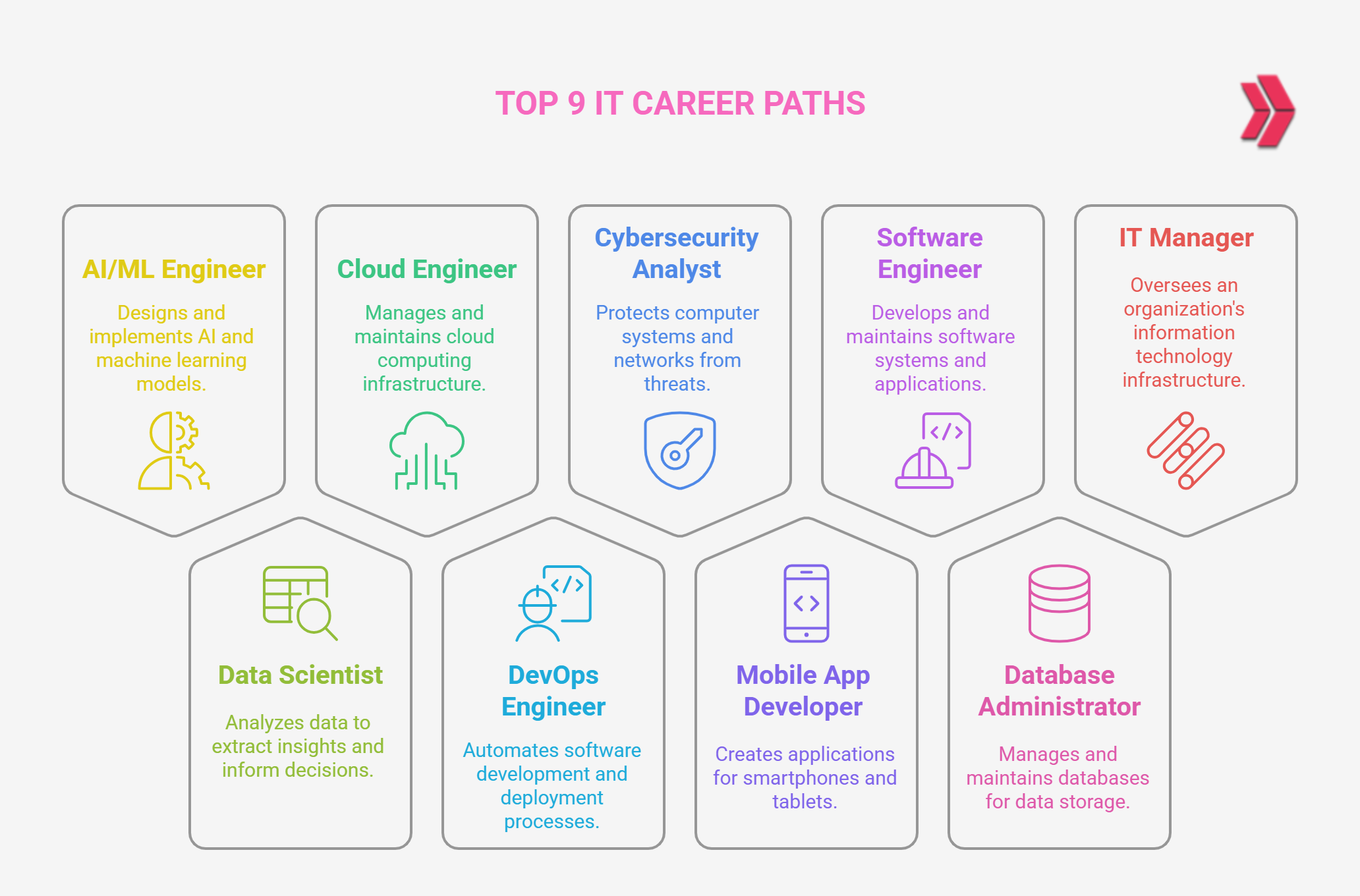Whether you’re a beginner or a seasoned professional, the job interview process can be daunting. You want to make a good impression and show the interviewer that you’re the best candidate for the job. But it’s also important to be aware of the things you should never say in an interview, especially if you’re interviewing for an IT job.
In this blog post, we’ll share 20 things you should never say in a job interview for an IT job. We’ll also explain why you should avoid saying these things and provide tips on what to say instead.

What are 20 Things You Should Never Say In A Job Interview?
Here are 20 things that you should avoid saying in a job interview:
- “I forgot to bring my resume.”
- “You got it wrong; I didn’t say that.”
- “I do not have much experience in this field, but ….”
- “You can check it from Resume.”
- “I have no weaknesses other than perfectionism.”
- “I really need this job.”
- “I want to work in one of the five famous companies as soon as possible.”
- “There is no question I want to ask.”
- “I Don’t Know.”
- “My boss was the cause of all the problems at the company.”
- “What’s the title of the role?”
- “That’s a good question!”
- “Um, Ah, So, You Know”
- “I think I should ask your name again.”
- “Can I have feedback?”
- “I can code very fast, and I love to read books.”
- “How much vacation time do I get?”
- “I am planning to start my own business as soon as possible.”
- “What is the salary?”
- “I guessed you would ask this question.”
Why You Should Avoid Saying These Things?
There are a few reasons why you should avoid saying these things in a job interview:
- They’re unprofessional. Some of these things, such as forgetting your resume or not asking any questions, are simply unprofessional. They show the interviewer that you’re not serious about the job or that you haven’t prepared for the interview.
- They’re negative. Other things, such as complaining about your previous boss or asking about the salary too early, are negative. They show the interviewer that you’re not a good fit for the company culture or that you’re only interested in the money.
- They’re unoriginal. Some of these things, such as saying “I have no weaknesses other than perfectionism,” are simply clichés. They’re overused and don’t tell the interviewer anything new about you.
What to Say Instead?
Here are some tips on what to say instead of the things on the list, and how to increase your chances of success in your job interview:
- Instead of forgetting your resume: Print out multiple copies of your resume and bring them with you to the interview. You should also have a digital copy of your resume on your phone or laptop, in case you need it. For tips on how to build a resume, check out this guide on resume-building tips and tricks.
- Instead of saying “You got it wrong; I didn’t say that”: If the interviewer misunderstands what you say, politely correct them. For example, you could say something like, “I apologize if I wasn’t clear. What I meant to say was…”
- Instead of saying “I do not have much experience in this field, but…”: Focus on the skills and experience you do have, and how they are relevant to the job you are interviewing for. You can also talk about your willingness to learn and grow.
- Instead of saying “You can check it from Resume”: Take the time to answer the interviewer’s question thoughtfully and comprehensively. Avoid simply repeating what is on your resume.
- Instead of saying “I have no weaknesses other than perfectionism”: Everyone has weaknesses, so don’t be afraid to admit that. However, focus on weaknesses that you are working on improving. For example, you could say something like, “One of my weaknesses is that I can be a bit of a perfectionist. I’m working on being more accepting of mistakes so that I can move on more quickly.”
- Instead of saying “I really need this job”: Focus on why you are interested in the job and the company. Talk about what you can offer the company, and how you can contribute to its success.
- Instead of saying “I want to work in one of the five famous companies as soon as possible”: Show the interviewer that you are interested in the specific job and company you are interviewing for. Talk about what you like about the company’s culture and values.
- Instead of saying “There is no question I want to ask”: Prepare a few questions to ask the interviewer. This shows that you are interested in the job and the company. You can ask questions about the company culture, the team you would be working on, or the specific projects you would be working on.
- Instead of saying “I Don’t Know”: If you don’t know the answer to a question, be honest. However, offered to find out the answer and get back to the interviewer.
- Instead of saying “My boss was the cause of all the problems at the company”: Avoid complaining about your previous boss or job. Instead, focus on your positive experiences and what you learned from your previous role.
- Instead of saying “What’s the title of the role?” Do your research on the company and the role before the interview. This will help you avoid asking basic questions that you could have answered on your own.
- Instead of saying “That’s a good question!” Take a moment to think about the question before answering it. Avoid giving impulsive answers.
- Instead of saying “Um, Ah, So, You Know”: Practice speaking clearly and concisely before the interview. Avoid using filler words such as “um” and “ah.”
- Instead of saying “I think I should ask your name again”: Pay attention to the interviewer’s name and use it throughout the interview. This shows that you are respectful and engaged.
- Instead of saying “Can I have feedback?” You can ask for feedback after the interview but don’t expect to get it on the spot. The interviewer may need some time to think about it. You can send a follow-up email to the interviewer a few days after the interview to ask for feedback.
- Instead of saying “I can code very fast, and I love to read books”: Focus on your skills and experience that are relevant to the job you are interviewing for. Avoid talking about your hobbies or interests, unless the interviewer asks you about them.
- Instead of saying “How much vacation time do I get?” Avoid asking about salary or benefits too early in the interview process. Focus on building a relationship with the interviewer and learning more about the job and the company.
- Instead of saying “I am planning to start my own business as soon as possible”: Show the interviewer that you are interested in the long-term prospects of the job and the company. Talk about your career goals and how you see yourself growing within the company.
- Instead of saying “What is the salary?” You can discuss salary later in the interview process, but don’t ask about it too early. The interviewer will likely ask you about your salary expectations at some point, so be prepared to answer that question.
How to prepare for an interview?
To prepare for an interview, it is important to do your research, practice answering common interview questions, be prepared to discuss your resume, be confident and enthusiastic, and ask questions. For more tips on preparing for an interview, check out this guide on the benefits of mock interviews and how to prepare.




